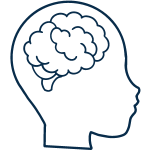Nurturing Potential: Signs Your Child Could Benefit from NeuroGro
Wondering if NeuroGro is the right fit for your child? Here are some signs that might help you decide!
- EMOTIONAL ROLLERCOASTER: If your child’s emotions seem like a wild ride – from highs to lows and everything in between – it might be a clue they could benefit from NeuroGro’s tailored approach.
- MOOD SWINGS: Constant mood swings that leave you scratching your head? NeuroGro can offer strategies to help your child better manage their emotions.
- TEMPER TANTRUMS: Explosive behaviors are tough on everyone. NeuroGro specializes in addressing these challenges, providing tools to navigate and diffuse difficult moments.
- DEVELOPMENTAL DELAYS: If you’ve noticed delays in your child’s development, NeuroGro’s individualized sessions can target specific areas, ensuring they catch up and thrive.
- EASILY DISTRACTED: Difficulty focusing and being easily distracted can be a sign. NeuroGro’s targeted therapies aim to enhance attention and concentration.
What’s the Root Cause of What My Child is Struggling With?
 Neurologically, several factors can contribute to your child experiencing these signs. It’s important to note that these factors can often interact, and each child’s experience is unique. If you’re interested in what some of those causes could be, keep reading. Here are some potential neurological reasons. If you don’t understand them all, no worries, but we want to provide some insight for you as to what might be going on with your child’s brain:
Neurologically, several factors can contribute to your child experiencing these signs. It’s important to note that these factors can often interact, and each child’s experience is unique. If you’re interested in what some of those causes could be, keep reading. Here are some potential neurological reasons. If you don’t understand them all, no worries, but we want to provide some insight for you as to what might be going on with your child’s brain:
- BRAIN DEVELOPMENT: Immature development in the prefrontal cortex, responsible for impulse control and emotional regulation, can lead to emotional highs and lows, as well as difficulties managing reactions to frustration.
- NEUROTRANSMITTER IMBALANCES: Disruptions in neurotransmitters like serotonin and dopamine can impact mood regulation, contributing to mood swings and emotional volatility.
- SENSORY PROCESSING CHALLENGES: Difficulties in processing sensory information can lead to emotional responses, mood swings, and temper tantrums, especially if your child becomes overwhelmed by sensory stimuli. This could be as simple as struggling with certain food consistencies or fabrics, or being overly stimulated by screen time.
- EXECUTIVE FUNCTIONING ISSUES: Challenges in executive functions, such as planning, organizing, and self-control, can contribute to mood swings, impulsivity, and difficulty managing frustration.
- NEUROLOGICAL DISORDERS: Conditions like ADHD, autism spectrum disorders, or mood disorders may result in neurological differences that contribute to emotional and behavioral challenges.
- GENETIC FACTORS: Genetic predispositions can play a role in your child’s neurological makeup, influencing how they respond to emotions, stress, and environmental stimuli.
- NEUROLOGICAL SENSITIVITY: Some children may be more neurologically sensitive, reacting intensely to emotions or changes in their environment, contributing to mood swings and tantrums.
- DELAYED BRAIN MATURATION: Delays in the maturation of certain brain regions can impact emotional regulation and cognitive functions, potentially leading to developmental delays.
- ATTENTIONAL ISSUES: Difficulty sustaining attention or being easily distracted may be related to differences in attentional networks in the brain, affecting a child’s ability to stay focused on tasks or regulate emotions.
- ENVIRONMENTAL INFLUENCES: Early experiences and environmental factors can shape neural development. Exposure to stress or trauma may affect brain regions involved in emotional regulation and attention.
Understanding the neurological underpinnings of a child’s behavior is crucial for effective intervention and support. A comprehensive evaluation by Dr. Joe, our Board-Certified Functional Neurologist, can help identify specific neurological factors contributing to your child’s challenges and inform personalized strategies for intervention and support.
Navigating a child’s emotional roller coasters, mood swings, tantrums, developmental delays, and distractability can be challenging. If you resonate with any of these concerns, it’s time to explore how NeuroGro can provide the tailored support your child needs.
Ready for a Change? Request a Discovery Call: 515.259.9336
Connect with our team to discuss your child’s unique situation and discover how NeuroGro’s personalized approach, guided by experts including a Board-Certified Functional Neurologist, can make a positive impact. Take the first step toward unlocking your child’s potential by requesting your Discovery Call today! Simply call us 515.259.9336 to schedule your Discovery Call.


